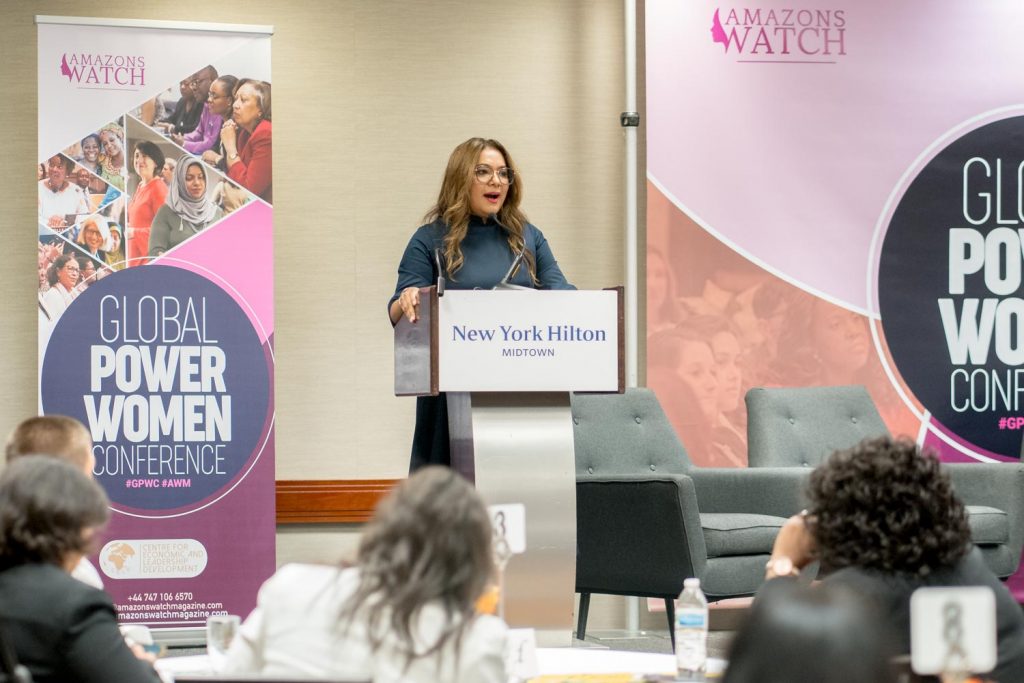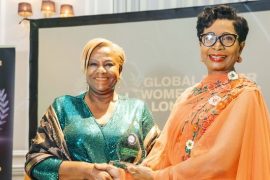“There is no limit to what we, as women, can accomplish.”
– Michelle Obama
Former First Lady of the United States.
The quote above aptly captures the translative impact of the First Lady’s role on socio-economic development. The First Lady position frequently puts women in traditionally male-dominated terrains, where they must skillfully and fearlessly negotiate complicated political environments. Standing next to their presidential partners, these women exhibit a distinct kind of dominance that goes beyond conventional power dynamics, significantly impacting societal advancement.
Amid certain voices that talk down on the functions and impact of the office of the First Lady, First Ladies around the world have consistently thrown their weight behind the fight against most of the challenges that global issues, such as – Poverty, Hunger, Diseases and health-related challenges, Lack of Quality Education, Gender Inequality, Unsafe Water, disaster relief, and Sanitation, among others. This has left a trail of direct impact on the lives of girls, women, and the most vulnerable populace, as evident in the support from most of the first ladies’ offices during the recent coronavirus pandemic.
The First Ladies on a Mission Roundtable Session is a unique high-level session annually put together by the Centre for Economic and Leadership Development (CELD) UK to spotlight the developmental activities and socio–economic impact of First Ladies’ initiatives across the globe. This unique session enlightens participants and global viewers about the laudable projects and social courses undertaken by First Ladies of Nations and the impact these projects have had on the people of their nations. This exciting annual Roundtable Session has hosted First from across the globe, including South Africa, Chile, Nigeria, Burundi, Timor Leste, Trinidad and Tobago, Ghana, Panama, Kenya, and Niger, among others.
Recently, the Centre for Economic and Leadership Development (CELD) and Amazon Watch Magazine (AWM) hosted the First Ladies on a Mission Roundtable Session during the Global Power Women Conference (GPWC) 2023, renowned as the prestigious global convocation of women leaders, which held on the sidelines of the 78th United Nations General Assembly (UNGA) New York. The event, which brought together several global women leaders, including H.E. Vjosa Osmani-Sadriu, the President of Kosovo, H.E. Angelina Ndayishimiye, the First Lady of Burundi, H.E. Mellisa Santokhi-Seenacherry, First Lady of Suriname, global directors and CEOs of international organizations, also served as a platform for the Annual First Ladies on a Mission Roundtable Session.
This year’s First Ladies on a Mission Roundtable Session featured Her Excellency Mellisa Santokhi-Seenacherry, the First Lady of Suriname, and Her Excellency Angeline Ndayishimiye, the First Lady of the Republic of Burundi. These amazing women took to the stage and dazzled the audience and viewers alike with a showcase of their extraordinary contributions to their countries’ social and economic developmental strides and the impact these projects have had on the people of their nations.
Aside from being a lawyer, H.E. Mellisa Santokhi-Seenacherry made gender equality and mental health her key priorities when she became First Lady of Suriname. She is the founder of the programme “Hoe Wij Ons Voelen” and a philanthropist who has recently collaborated with UNICEF and PAHO, among other NGOs. She serves as vice-chair of SCLAN, the Spouses of CARICOM Leaders Action Network. The United Nations Secretary-General appointed her to the Secretary General’s Advisory Board on Zero Waste Management.
While making her presentation at the GWPC annual conference, H.E Mellisa Santokhi-Seenacherry delivered an outstanding presentation, revealing all the amazing projects she’s involved in.
She read thus: “Today, I would like to share one of the pillars mentioned here today. One of the pillars I championed was ‘mental health’. We’ve all experienced the profound impact of COVID-19 on our mental health, and since then, mental health has been getting more and more attention. But moving on to a sensitive and serious aspect of this subject, looking at the suicide rate of my country in the past 5 years, it was rated the second highest and top 10 worldwide. While Suriname only has a population of 600,000 citizens, so you can see why this is concerning. Emotions are sensitive and complex issues; young people from cultures with strict emotional taboos like Suriname may internalize feelings of shame and guilt when they try to talk about their emotions with grown-ups. These can hinder their ability to express, communicate, or articulate their feelings effectively, leading to misunderstandings and strange relationships between the family and their environment. Thus, they may experience increased stress, anxiety, or depression. Seeking help from a psychologist is always frowned upon; this is the case in Suriname and within its region.
“Even though there are so many actions taken regarding the subject, like NGOs, private government, and others, no program really went to the core of the issue. So, I decided I needed to take action; I started a programme called “Hoe Wij Ons Voelen” in Dutch, translated as “How We Feel” in English. It’s a programme in partnership with UNICEF Suriname, and this programme was created to provide societies, especially young people, with tools and tips on how to recognize and be aware of the flow of emotion within themselves and in every situation.
“That’s why we talk about different types of emotions, such as anger, fear, sadness, and happiness, and their triggers. We mostly try to create a safe space in a non-judgmental environment where kids feel comfortable sharing their thoughts and feelings with either their peers or their friends.
During her speech presentation, a video was played to portray the significance of the project she initiated, “’Hoe Wij Ons Voelen’ (How We Feel) programme”. Which captured some teenagers who attended the programme shared their testimonies:
Thelya Clarke said, “It was a very fun and learning experience. The people involved were all very nice. I learnt more about how to talk with my peers about their feelings and how to deal with them.”
Chloe Pierre attested, “My experience with this programme was fun, and it was a great opportunity to talk about the past. I have changed for the better. Before the programme, I was so bossy, and I’ve been able to handle the situation and my emotions with that. I also corrected my friends in situations where they have been mean to others, I showed them their mistakes, and they realized it”
Before the programme, I was not very open with my feelings; I was like, “How do I tell someone this?” but with what I have experienced from this programme, they were like ‘You can now be more open; you don’t have to be afraid of what you have to say, so I tell my friends just be yourselves” – Chagir Sawiran
Lyentho Clarke said, “Before this programme, I really did not care about other people’s feelings; I just did what was best for me, and that’s how it makes me feel. I didn’t think about how others would feel about my actions, but after the programme, I started caring about other people’s feelings more.”
In conclusion, H.E. Santokhi-Seenacherry said, “We genuinely appreciate their willingness to share their emotions, thoughts, and feelings. They need to know that we are truly listening, and their emotions are completely valid, their perspective matters, and we want to ensure that they feel heard and understood and the poor empowered as you have heard from them.”
About AWM
The Amazon Watch Magazine is a premier women’s development publication committed to continually highlighting the giant strides of women from Africa and the rest of the world, dedicated to empowering, inspiring, and uniting women from diverse backgrounds. Through events, workshops, and initiatives, we strive to create a supportive community that encourages personal and professional growth for women.
About CELD
The Centre for Economic Leadership and Development (CELD) is a leading human capacity, gender empowerment, and development-based organisation that sees itself as a catalyst and thought leader in developing the theory and practice of leadership, social, educational and economic empowerment particularly in Africa, and also the developing countries of the Middle East, South America and Asia. As an organisation currently in special consultative status with the United Nations Economic and Social Council (UN ECOSOC) since 2012, we strive to advance our partnership with public and private sector organisations at different stages to develop, refine and effectively execute strategies that deliver superior corporate/institutional excellence. We empower the men and women folk for peak performance.





Comments are closed.